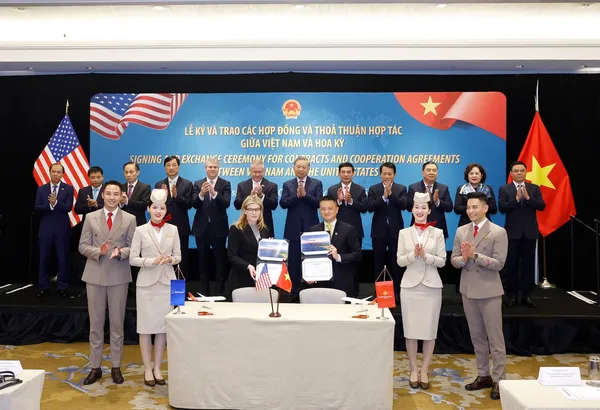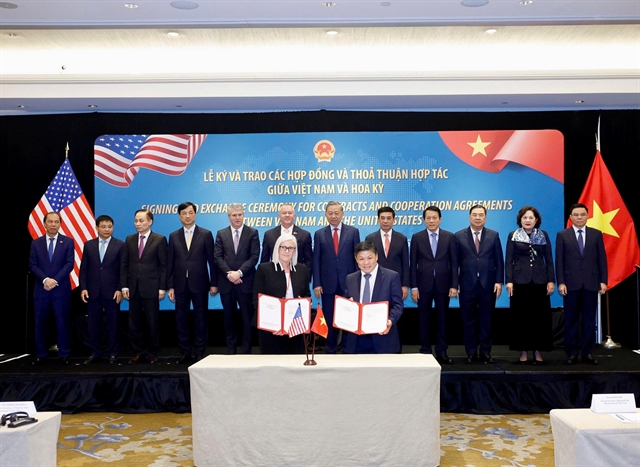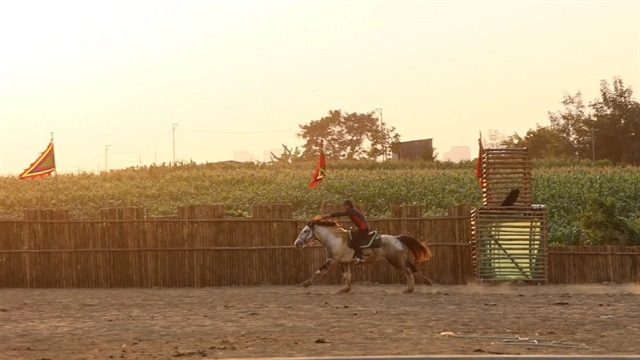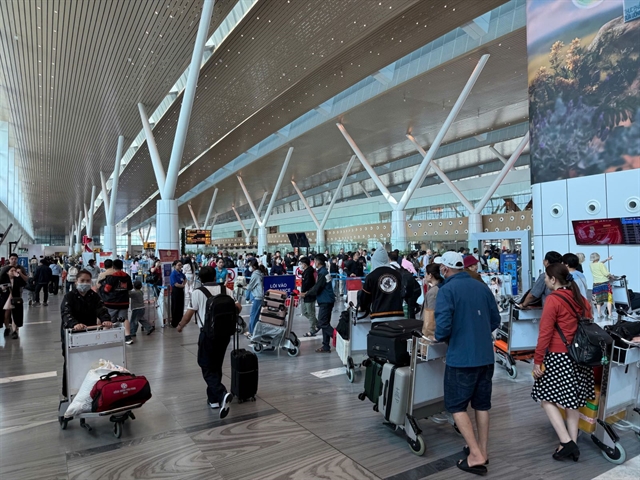 Society
Society
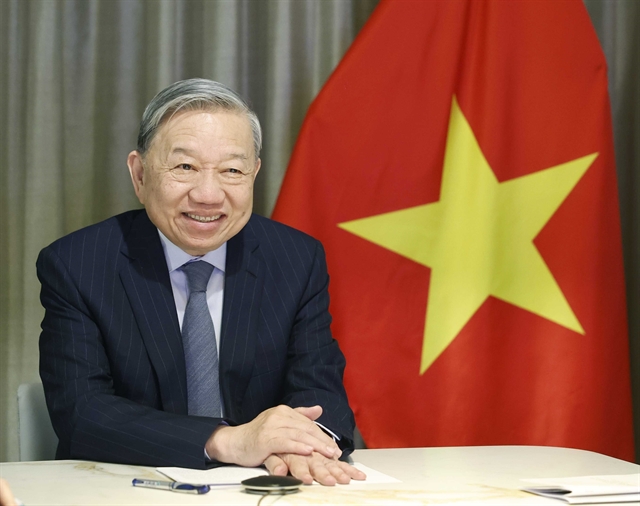
Prime Minister Nguyễn Xuân Phúc has urged the whole political system and society to work together in protecting the environment after recent environmental pollution incidents that have harmed socio-economic development while affecting the living conditions of local people.
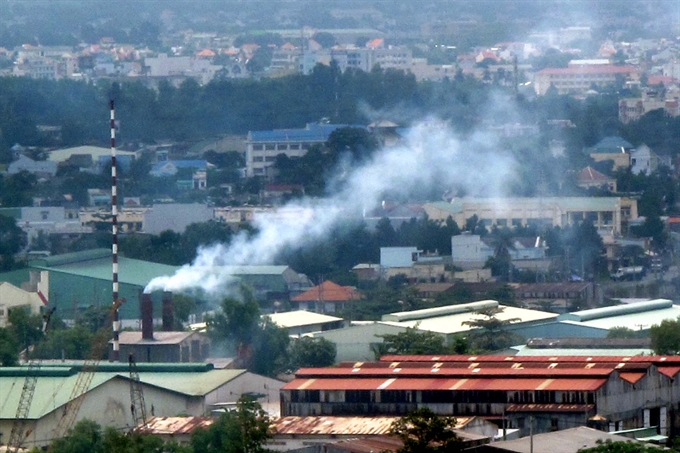 |
| Factory chimneys in southern Đồng Nai Province’s Biên Hòa Industrial Zone 1. Prime Minister Nguyễn Xuân Phúc has ordered society at all levels to help protect the environment.— VNA/VNS Photo Tràng Dương |
HÀ NỘI — Prime Minister Nguyễn Xuân Phúc has urged the whole political system and society to work together in protecting the environment after recent environmental pollution incidents that have harmed socio-economic development while affecting the living conditions of local people.
It is part of the Government leader’s requirement in his newly-issued directive on environmental protection, which was produced after last month’s national teleconference on the work.
He said at the teleconference that many cases of environmental pollution and violations of environment protection regulations in the past had led to great public concern. The situation had worsened over many years of socio-economic development, affecting the living conditions of local people and causing social disorder.
A report at the conference revealed that the whole country recorded over 50 cases of environmental pollution that caused great public concern since early this year, particularly the recent marine environment pollution incident caused by the Taiwanese Hưng Nghiệp Formosa Hà Tĩnh Steel Corporation. The corporation had released toxic wastewater into the sea along some central provinces, causing serious pollution that killed a massive amount of fish in these localities.
In the directive, PM Phúc laid out some key measures to improve the quality of the environment, including not attracting investment by all means with a focus on environmental protection criteria while choosing investment projects, preventing the import of outdated technology and implementation of projects with high risks of environmental pollution. He said “it is not acceptable to exchange the environment in return for economic growth”.
He said it is necessary to define that environmental protection should be a compulsory requirement throughout the country’s development process.
The directive also urges strict following of the Party resolution and State policies and laws on environmental protection, clarifying the responsibilities of relevant agencies, particularly the management role of the natural resources and environment ministry, and of natural resources and environment departments in localities.
Chairmen of the people’s committees of localities will have to take responsibility before local people and the Government if serious environmental incidents happen in their localities, it said.
Promoting the participation of all sources in the society in investing in environmental protection is another solution. Accordingly, capital funds from the State budget will be used to deal with urgent environmental issues, build environmental monitoring stations and warning systems at key economic regions, at areas with a high density of waste discharging sources and at environmentally sensitive areas.
The PM also requires relevant ministries and agencies to review, adjust and increase quality and efficiency of environmental protection tools and measures. On that basis, the country will focus on completing the plan to tackle all establishments causing environmental protection by 2020.
Increasing State management over environmental protection, meeting demands of the new development situation, is needed, said the directive. Specifically, the Ministry of Natural Resources and Environment is entrusted to study and propose amendments to regulations on inspecting and examining environmental protection and co-ordinate with people’s committees of localities to increase inspection and give warnings over areas with high risks of environmental pollution.
The Ministry of Home Affairs is asked to work with the Ministry of Agriculture and Rural Development and the Ministry of National Defence to soon establish a plan to set up a National Committee coping with emergency incidents.
The PM also asks for the speeding up of information dissemination to raise public awareness of environmental protection.
Former Deputy Director of the Pollution Control Department under the General Department of Environment, Trần Thế Loãn, told Tuổi Trẻ (Youth) newspaper that all these measures laid out by the PM were urgent.
In the current context of economic development, it was a must to not allow the importation of outdated technology in production and investment projects with high risk of environmental pollution, he said, adding that appraisement agencies needed a strong point of view and determination when choosing investment projects.
Director of the Environment General Department under the Ministry of Natural Resources and Environment, Nguyễn Văn Tài, told the newspaper that these measures were directed in detail by the Prime Minister and the ministry will soon implement these solutions to improve environment protection.
Environmental pollution risks
The Ministry of Natural Resources and the Environment reported that the country is currently home to 283 industrial zones which discharge over 550,000cu.m of wastewater per day, not to mention 615 industrial clusters along with over 500,000 production facilities.
Furthermore, 787 urban areas discharge into the environment 3 million cu.m of wastewater per day, but only 40 out of the urban areas have standard waste treatment systems with a total capacity of 800,000cu.m per day.
The use of nearly 43 million motorbikes and over 2 million cars nationwide generate huge gas emissions that are polluting the air.
Over 23 million tonnes of domestic waste, 7 million tonnes of industrial waste, and 630,000 tonnes of harmful waste, together with 337 insanitary landfills and over 100 low-capacity incinerators are also the reasons for environmental pollution.
Besides, discarded packaging from around 100,000 tonnes of plant protection chemicals each year is another source of dangerous pollutants.
It also reported that although FDI businesses are contributing 70 per cent of the country’s GDP, they are tending to shift their investment into environmentally-unfriendly sectors such as metallurgy, ship repair, footwear and garments.-VNS


